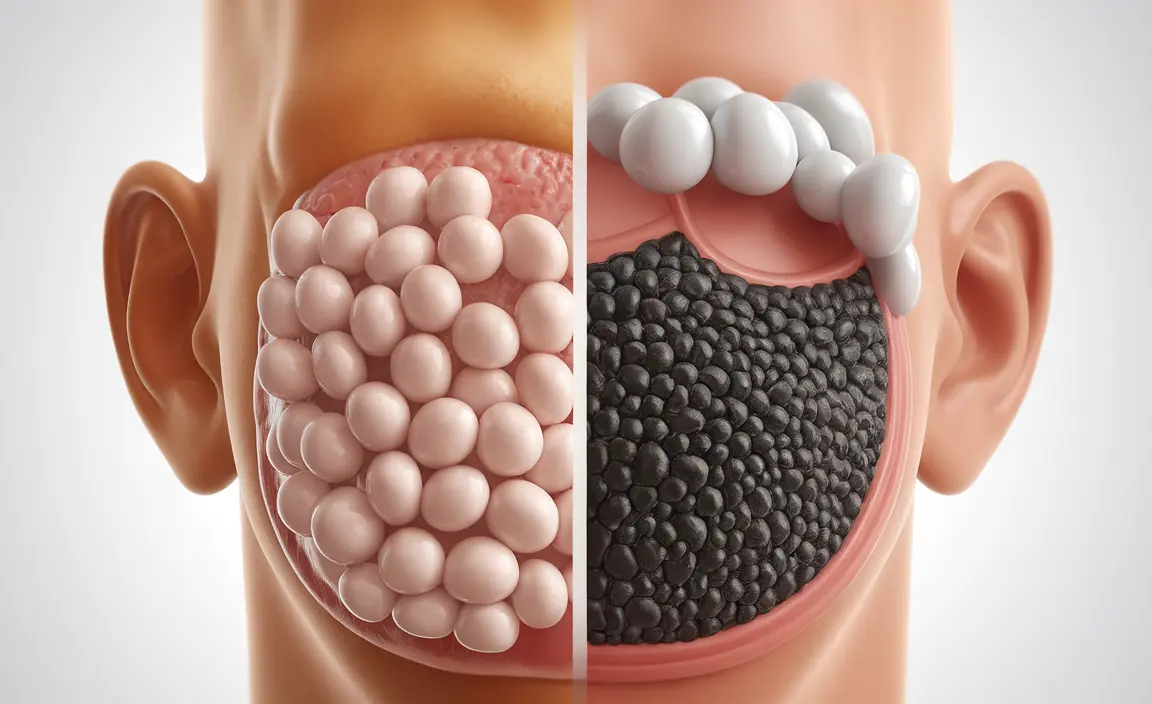Acne comes in various forms, but two of the most common types that affect people of all ages are whiteheads and blackheads. While both are types of non-inflammatory acne, understanding their differences is crucial for effective treatment and prevention. This comprehensive guide will help you distinguish between these common skin concerns and provide actionable solutions for clearer skin.
What Makes Whiteheads and Blackheads Different?
Whiteheads and blackheads are both types of comedones, but they form and appear differently on the skin. Whiteheads, also known as closed comedones, occur when dead skin cells and oil become trapped beneath a closed pore surface, creating a small, white or flesh-colored bump. Blackheads, or open comedones, form when these same materials oxidize due to exposure to air, resulting in their characteristic dark appearance.
Common Causes and Risk Factors
Hormonal Influences
Both whiteheads and blackheads often develop due to hormonal changes, particularly during puberty, menstruation, or pregnancy. These hormonal fluctuations can increase sebum production, leading to more frequent breakouts.
Environmental Factors
External elements such as humidity, pollution, and certain skincare products can contribute to pore blockage. Heavy or comedogenic products are particularly problematic as they can create an environment conducive to both whitehead and blackhead formation.
Effective Treatment Strategies
Professional Treatments
Professional treatments like chemical peels, extraction procedures, and specialized facials can effectively address both types of acne. These treatments should always be performed by qualified skincare professionals to prevent skin damage and scarring.
At-Home Care
Regular cleansing with non-comedogenic products, gentle exfoliation, and the use of targeted treatments containing ingredients like salicylic acid or benzoyl peroxide can help manage both conditions. It's essential to avoid harsh scrubbing, which can irritate the skin and worsen inflammation.
Prevention Tips and Best Practices
Daily Skincare Routine
Maintaining a consistent skincare routine is crucial for preventing both whiteheads and blackheads. This should include:
- Gentle cleansing twice daily
- Regular exfoliation with appropriate products
- Use of non-comedogenic moisturizers
- Sunscreen application during the day
Lifestyle Modifications
Several lifestyle changes can help reduce the occurrence of both types of acne:
- Keeping hands away from the face
- Regularly cleaning makeup brushes and pillowcases
- Managing stress levels
- Maintaining a balanced diet
- Staying properly hydrated
Frequently Asked Questions
What are the main differences between whiteheads and blackheads in terms of causes and appearance? Whiteheads are closed comedones that appear as white or flesh-colored bumps, while blackheads are open comedones that appear dark due to oxidation. Both are caused by trapped oil and dead skin cells, but their appearance differs based on whether the pore is open or closed.
How do you effectively treat blackheads and whiteheads without causing further inflammation? Use gentle, non-comedogenic products containing ingredients like salicylic acid or benzoyl peroxide. Avoid harsh physical scrubs and instead opt for chemical exfoliants. Regular cleansing and proper moisturizing are essential, and professional extractions can be helpful when done correctly.
What are some natural home remedies for preventing blackheads and whiteheads? Natural remedies include tea tree oil as an antibacterial agent, honey for its antimicrobial properties, and green tea as an anti-inflammatory. However, these should be used cautiously and properly diluted to avoid skin irritation.
Can certain foods or lifestyle changes help reduce the risk of developing whiteheads or blackheads? Yes, maintaining a balanced diet low in refined sugars and dairy, staying hydrated, getting adequate sleep, and managing stress can help reduce breakouts. Regular exercise can also improve circulation and skin health.
What are the best skincare products and routines for managing and preventing blackheads and whiteheads? Look for products containing active ingredients like salicylic acid, glycolic acid, or retinoids. Establish a consistent routine of cleansing, toning, treating, and moisturizing. Use non-comedogenic products and always remove makeup before bed.




